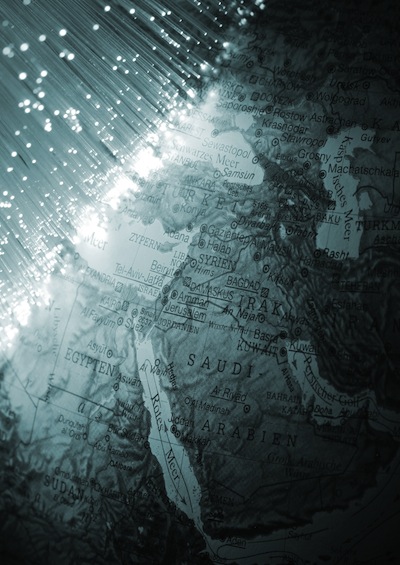The Failure of Islam to Reform
Only Islam can extricate itself from the failures in its history.
September 22, 2014

The existence of ISIS (the Islamic State of Iraq and the Levant) can be ascribed to the fact that, in contrast to Western European Christianity, there was never a reformation in the world of Islam.
While the reformed, primarily protestant nations of north-western Europe, especially Britain, the Netherlands, Germany and the Scandinavian states, as well as France (still mainly Catholic, but with a strong separation of church and state) created modernity, the Arab world essentially rejected it.
This represented a major turn of events. After all, it was Western Christian Europe that had witnessed the Roman Inquisition imprison Galileo Galilei for his advocacy of heliocentrism in the early 17th century (1615). By the 18th century, things had been completely transformed with the Western European Enlightenment.
Medieval Europe and the contemporary Arab world
There was no Arab Enlightenment in the 18th century, as there was no Islamic Reformation in the 17th century. Little wonder then that some of what we see today in the Islamic world is reminiscent of Christian Western Europe at the time of the inquisition.
The issue is vividly chronicled in a series of debates, recounted in Albert Hourani’s excellent book Arabic Thought in the Liberal Age: 1798-1939 (1983), held in the 1880s between the Islamic scholar Jamal al-Din Al-Afghani and the French philosopher and Arabist Ernest Renan.
Renan argued that science was incompatible with Islam as then practiced, as well as with the contemporary nature of Arab society. Al-Afghani, even though Iranian and Shiite, argued the contrary. In other words, Al-Afghani held that Islam and science were compatible and that the true villain of the Arab world’s backwardness lay in Western imperialism.
Al-Afghani is the subject of the second chapter (“The Strange Odyssey of Jamal al-Din al Afghani”) in Pankaj Mishra’s recent book, From the Ruins of Empire.
An Ottoman Gutenberg?
As Western Europe came to embrace modernity and new technologies (wherever they might originate from), the Ottoman Empire resisted. This is well illustrated in the parallel narratives of the introduction of the printing press and its relation to sacred texts.
The German inventor Johannes Gutenberg first introduced the printing press with moveable type in the mid-15th century. In the ensuing decades, it rapidly spread across Western Europe. What became known as the “Gutenberg Bible” — i.e., the printed Bible — allowed for a widespread readership.
In contrast, the Ottoman Sultan Byezid II (1481-1512) expressly forbade Muslims from printing the Quran in Arabic. Though this ruling was eventually rescinded, in reality the printing press made very slow progress in the Muslim world.
As Daron Acemoglu and James Robinson point out in their book Why Nations Fail:
Until well into the second half of the 19th century, book production in the Ottoman Empire was still primarily undertaken by scribes hand-copying existing books…This opposition to the printing press had the obvious consequences for literacy, education and economic success. In 1800, probably only 2-3% of the citizens of the Ottoman Empire were literate, compared with 60% of adult males and 40% of adult females in England.
Need one say more?
Yes. It is true that during the final agonizing collapse of the Ottoman Empire, Britain and France moved in aggressively.
Rejecting globalization
The infamous 1916 Sykes-Picot Agreement, whereby Britain and France drew up plans to carve up the Middle East into respective spheres of influence after the (1914-1918) war, caused havoc. The havoc has been a marked feature of the 20th century and, after the Anglo-American invasion of Iraq in 2003, has remained a feature of the 21st.
That Arabs now feel resentful towards Britain, France and the United States for western imperialism is understandable. And yet, looking at the same issue — Western imperialism and the havoc that it created — through a wider lens, it is the case that Western powers’ conquests were not limited to the Middle East but extended throughout most of Asia.
Nevertheless, Eastern Asia did not choose to reject globalization, as did the Arab cultures of the Middle East. This has made all the difference for East versus West Asia.
Takeaways
There was no Arab Enlightenment in the 18th century, as there was no Islamic Reformation in the 17th century.
East Asia did not choose to reject globalization, as did the Arab cultures of the Middle East.
That Arabs now feel resentful towards Britain, France and the US for western imperialism is understandable.

